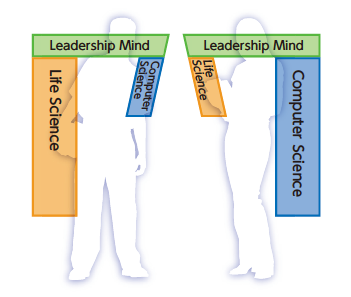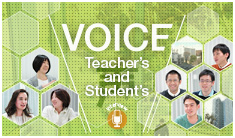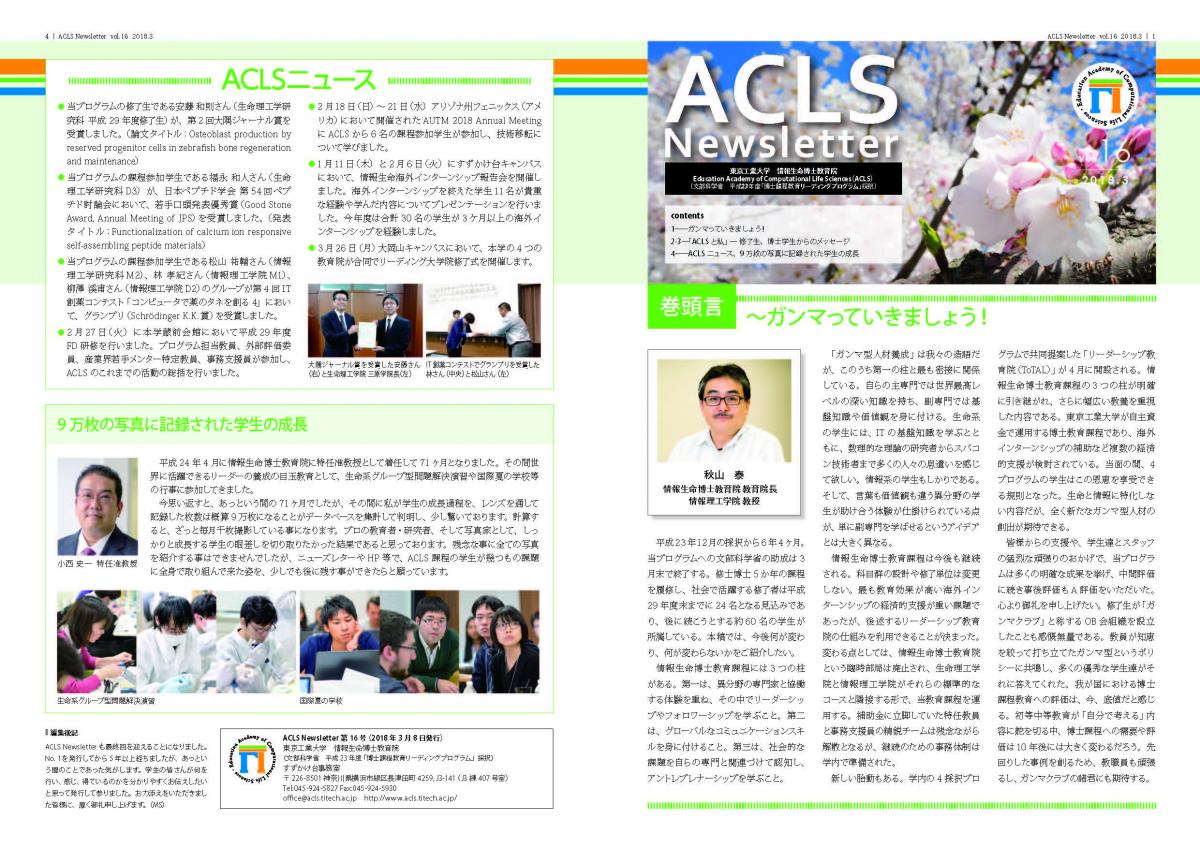- Home
- About the Academy
- Project Goal and Evaluation
Project Goal and Evaluation
Project Goal

Among various features in this program, the most outstanding one is the very idea of the "Γ (gamma) type specialist". In this section, we explain the importance of the main pillar of this program: training of the "Γ-type specialist"
Specialists with a single area of expertise are called "I-type specialists"; the name comes from the shape of the alphabet letter "I". Likewise, specialists with a wide-ranging interdisciplinary expertise are called "T-type specialists".
Life & health science in the 21st century is growing rapidly in terms of methodology. Now it enters the post-genome age in which the most significant factor of advancement is information strategy, i.e. the strategy of how to utilize massive genomic information and the enormous quantity of data derived from it on proteomics or the RNA world.
Prophylaxis or medical procedures that sustain our "life and health" are now tailored to each patient's medical conditions, and the demand for appropriate medication, diagnostic approach, and medical materials based on detailed information is growing.
We should positively introduce approaches based on the abovementioned information in the fields of biotechnology and materials engineering, where so far we have focused on matters relating to materials or synthesis alone, in order to promote research on medication, diagnostic approaches and development of medical materials to meet these "life and health" needs.
Now more than ever before, we need specialists who have multidisciplinary knowledge and skills in these fields and ability to lead the way in utilizing them in the international arena.
Knowledge of high-speed simulation by supercomputers and research approaches by massive data mining, as well as the skills to utilize these computer science methods in life science research are now significantly required from contemporary life science specialists.
In Japan, however, few people have completed specialized education in both of these fields, and therefore, training for such specialists is considered to be the top priority for our country's future R&D.
There is another specialist called "Π (pi) type specialist", who has developed expertise in two fields along with a broader perspective.
This "Π (pi) type specialist" is absolutely ideal for the task, but in reality, there are many difficulties in training a young doctoral student to be such a specialist from the start.
Five years of doctoral education in the conventional graduate school education system is not always sufficient for students to complete a single area of expertise in the field of life (or computer) science, let alone to complete 2 or more areas in this short period.
We firmly believe that for our graduate students at the Tokyo Institute of Technology, we should first provide them with a learning environment in which they can acquire substantial knowledge in their area of expertise and opportunities to develop a strong background as doctors to build their future career paths in industry or academia.
Then they can move on to acquire knowledge in their secondary specialty area with the help of actual specialists, and practice it effectively. Thus we can produce "Γ (gamma) type specialists" who have thorough practical knowledge in their specialty area along with relevant knowledge and experience in their secondary specialty area.
The "Γ-type specialist" who enters the real world is expected to become a true "Π-type specialist" eventually by his continuous effort and by building up experience.
In order to achieve this goal, we should not wander into a small-scale education system by a small group of specialists with intermediate knowledge of life and computer sciences; instead we must provide a large-scale education environment supported by all the associated life science departments (all five departments of the Graduate School of Bioscience and Biotechnology), in which computer science specialists can provide organized lectures and exercises.
Project Evaluation
The evaluation of the success of a human resource development project involving multiple science fields requires a long-term assessment of the program's subjects in order to fully appreciate its impact.
For short-term evaluation, we are able to assess the impact of the program based on figures such as the increased number of program students employed at companies or foreign research institutes in different fields or categories from the previous year, or based on the outstanding accomplishments that those students make during the early stages of their employment.
The increasing number of papers published by the doctoral students, or the innovative and multidisciplinary research achievements of the program students can be an indirect indicator for evaluating the effectiveness of training for the students.
In this 7-year project, approximately 20 doctoral students will graduate per year from the training program, supported by ten associated departments of three graduate schools, and at the end of this project, there will be two groups of specialists who have completed the academy’s 5-year training program.
Regarding these 40 specialists, we are going to analyze their career paths and academic achievement in those paths. The actual result of our analysis will be forwarded to the external evaluation committee which will review the impact of this project objectively.
We do not believe that every student of this program will get a job at completely different kind of company or institute from those who have completed regular graduate school programs. We would rather like to expect that they will have excellent performance as Γ-type specialists in business enterprises with which we have developed a good working relationship. Employment status alone is not enough to measure the effectiveness of the academy's training program, but it would be a certain barometer to prove its novelty as well as the impact of this program's innovation, if at least 10 % of the abovementioned specialists would develop completely different career paths from others.
- External Evaluation Committee
As shown in our organization chart, we set up an external evaluation committee in the academy, and we hold regular meetings (at least once per academic year) to assess our yearly achievement based on the detailed program report delivered in advance, along with recommendations from program advisers appointed to the academy among industry, academia, and government experts.
In addition to the abovementioned evaluation meetings, we independently hold workshops and symposiums focused on the students' progress reports in the program, providing evaluation committee members with various opportunities, as well as on their progress in the regular programs such as the "International Life & Health Science Contest" or the "International Summer School of Life & Health Science", in order for the evaluation committee members to get a picture of the actual program activities, so that they can advise us objectively.
We also invite two experts: one from industry and one from government, as steering committee members so that we can have their advice regularly regarding program administration.
Nine distinguished researchers from abroad join us as program advisers as well, and their experience in the international arena greatly contributes to the program administration, providing a global edge. - Comments from Foreign Researchers and Top Journal Editors
We make the most of every opportunity to obtain opinions and advice from as many foreign researchers as possible, such as invited lecturers, international corporate representatives, international journal editors, and so on. Such expert opinions greatly contribute to program administration. - Reports on Achievements and Request for Opinions
Information on our program activities and achievements will be published online internationally and we always welcome and value opinions and feedback. - Assessment before Program End
Aside from the official assessment on the program by the Ministry of Education, Culture, Sports, Science & Technology of Japan (MEXT), we, the Tokyo Institute of Technology, will review and evaluate this educational program internally in the last year of the program term and before its end in order to decide whether we shall continue the "Education Academy of Computational Life Sciences" in the following year, and if we do, we will decide on an outline of the budget allocation and staff recruiting.
![]()










